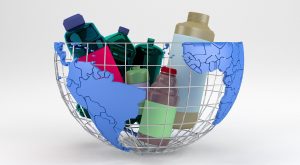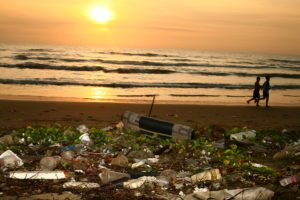The global growth model will face a profound change in the coming years. At stake is the very survival of the planet since, according to United Nations estimates, at the current rate of consumption, in 2050 the equivalent of three earths will be needed to satisfy the demands for natural resources of a population that is growing at a dizzying rate.
Recycling is just one more edge of a complex range of social and environmental initiatives that must be increasingly stimulated to offer new solutions. And, within it, a key point is the management of plastic waste, which only in marine ecosystems represents the arrival of 12.7 million tons of waste of this material each year.
Plastic is a difficult material to manage as waste although when it comes to innovation, several ways are being found for its management and reuse. Repetco, for example, offers its own patented system, which is respectful with nature, through PET/PE multilayer food packaging of post-consumer origin. Through a unique process, rPET pellets and rPE are generated that can be reused in the food industry with trays and containers made of multilayer PET/PE sheets; in bottles for soft drinks or detergents; and in fibers for the textile and automobile industry.
Institutional support
The greatest global awareness on the usefulness of plastic and, above all, of the new “lives” possible to give it once it is reused, is penetrating deeply among the main world governments. In the case of Europe, within the objectives set on circular economy, is that by 2025 50% in the volume of recycling of plastic packaging is reached. In Spain, the Ministry of Ecological Transition and the Demographic Challenge has set itself the challenge of reaching 60% by 2030.
The paradigm shift from conceiving plastic as a waste to valuing it as a resource requires an ambitious strategy that runs in parallel in several joint initiatives, such as consumer training, sufficient stimulus for companies to modify their supply chain to make them more sustainable or favor greater accessibility to the plastic already used for companies specializing in its use and transformation, such as Repetco.
It is necessary to stop conceiving of plastic as a waste to appreciate it as a resource with added value
Countries like Spain are not yet prepared to meet the increased demand for recycled plastic, since, as stated in a report by the Center for Innovation and Development for the Circular Economy (CIDEC), “there is a mismatch between the supply and the demand for r-PET”, which must evolve so that “ it can be translated into opportunities to improve the efficiency of the collection and recycling processes, undertaking new investments and modernizing the competitive capacity of the r-PET industry in Spain ”.
This document defends the urgency of promoting a secondary market for r-PET in the country, “both because of its lower environmental impacts and because of the opportunity to create jobs linked to recycling processes and the necessary investments to renew the country’s industrial capacity”.
Other articles of interest: What benefits does PET plastic recycling have for the economy
Regulatory challenge
In addition, the text indicates that, from a normative point of view, the coming months should be key for the development and implementation of a true European Strategy on Plastics, which encourages a real redefinition of recycling mechanisms. In this way, synergies and ways of collaboration could be promoted between companies active in this industry. In addition, recycled products can have a simple entry into the market, thus reducing the need to consume new plastic packaging.
Lastly, if a suitable balance is made between the demand for r-PET and its production, it will be possible to meet the objectives set on Circular Economy as well as the growing social pressure in favor of environmental and sustainable policies. Among other milestones, one of the keys to achieving this is to improve technical and safety requirements, while betting on the commercialization of recycled r-PET containers, so that the sale of recycling solutions that are effective generate minimal possible contamination.
Other news of interest: The future challenges of the domestic plastic sector







